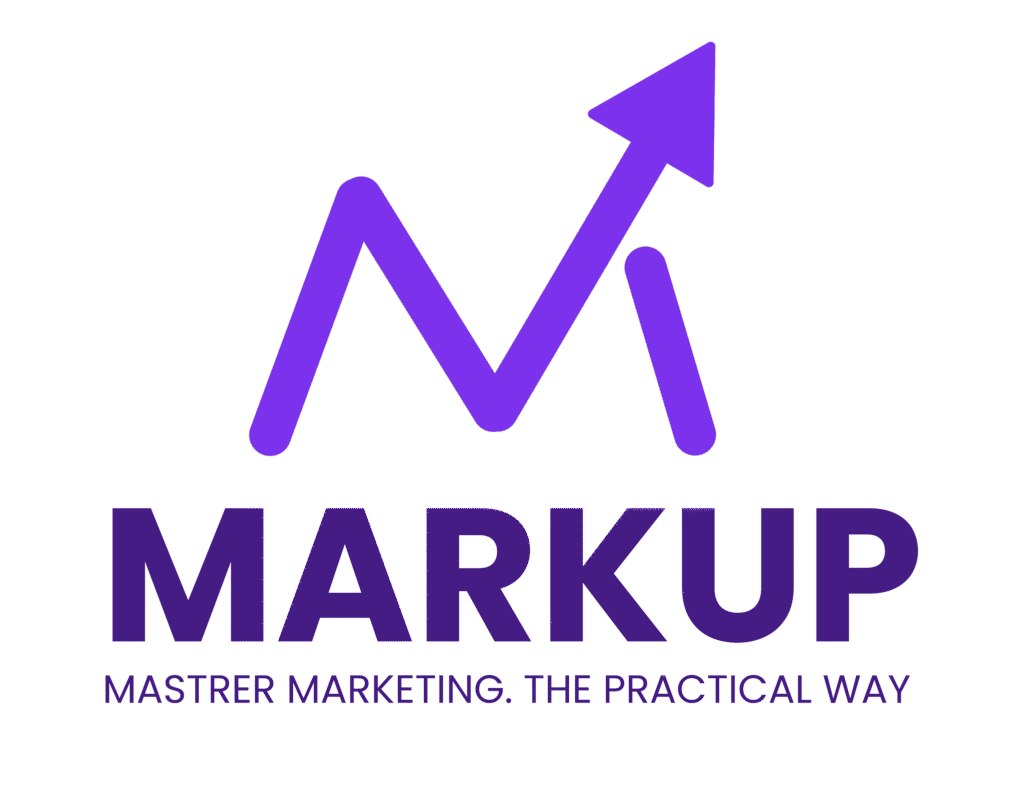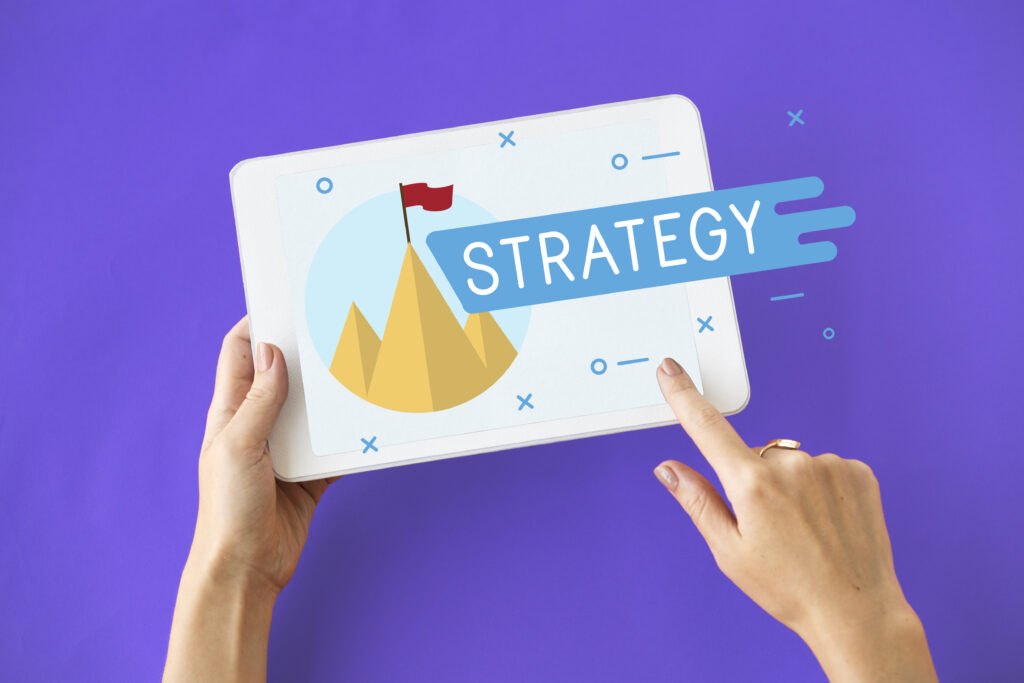In today’s hyper-digital world, creating ads, posting content, or launching campaigns isn’t hard. But cutting through the noise to create real business impact? That’s where a marketing strategy becomes your best friend.
For young marketers—especially students and early professionals—understanding how to build a marketing strategy is like learning how to steer before you hit the accelerator. Without a well-thought-out strategy, even the best campaigns are like arrows shot in the dark—wasted effort with uncertain results.
So, let’s break it down. What exactly is a marketing strategy, and how do you create one that not only looks good but works?
What is a Marketing Strategy?
A marketing strategy is your master plan. It outlines how you’ll reach your target customers and turn them into loyal buyers. It includes everything—from market research and positioning to channel selection and content planning.
In simpler terms, it’s about answering four key questions:
- Who is your audience?
- What problem are you solving for them?
- How will you reach them?
- How will you measure success?
It’s not a social media calendar or an ad budget—it’s the logic behind every marketing move you make.
Why It Matters
In a world where 72% of marketers say content creation is more important than ever (HubSpot, 2024), and customers are bombarded with over 5,000 marketing messages a day, a clear strategy helps you:
- Stay focused and avoid wasting resources.
- Connect deeply with your audience.
- Outperform competitors who rely on guesswork.
- Adapt quickly when market conditions change.
Without strategy, tactics are just noise. But with the right strategy, every campaign becomes a calculated step toward business growth.
Key Elements of a Great Marketing Strategy
1. Audience Research
Marketing without knowing your audience is like speaking into a void. Start with questions like:
- Who are they (demographics)?
- What do they care about (psychographics)?
- Where do they spend their time online?
- What are their pain points?
Use tools like Google Trends, Reddit, Quora, or simple surveys to gather insights.
2. Unique Value Proposition (UVP)
Your UVP is what sets you apart. It answers: “Why should someone choose you over the competition?”
Example:
MarkUp isn’t just a marketing training program. It’s real-world experience, mentorship, and execution—all bundled for Gen Z creators who want to lead, not follow.
3. Marketing Goals
Are you looking to build awareness, generate leads, or drive sales? Use SMART goals—Specific, Measurable, Achievable, Relevant, Time-bound.
Example:
Increase website signups by 20% in 3 months through organic traffic and student ambassador campaigns.
4. Channel Strategy
Not all channels are created equal. Choose based on where your audience hangs out:
- Gen Z? Instagram Reels, YouTube Shorts, Discord
- Working professionals? LinkedIn, Email, Blogs
- B2B SaaS? Google Search, LinkedIn Ads, Webinars
Don’t spread yourself too thin—master 2-3 channels before expanding.
5. Messaging & Positioning
What you say matters as much as where you say it. Define your brand voice:
- Are you playful or professional?
- Educational or witty?
- Bold or empathetic?
Consistent messaging builds recognition and trust.
6. Execution Plan & Content Calendar
Execution is where strategies come to life. Build a content calendar that aligns with your goals. Include:
- Weekly posts (e.g., Monday Tips, Friday Reels)
- Monthly campaigns (e.g., contests, influencer shoutouts)
- Timely hooks (festivals, college fests, trending topics)
Use tools like Notion, Trello, or Buffer to organize tasks.
7. Measurement & KPIs
You can’t improve what you don’t measure. Track:
- Website traffic
- Social media engagement
- Conversion rates
- Cost per acquisition (CPA)
- Customer lifetime value (CLV)
Let data guide your decisions.
Real-World Scenario: The Rise of a Campus Brand
Imagine you’re launching a startup that sells eco-friendly stationery. Here’s what your strategy might look like:
- Audience: Students aged 17–24 in India, interested in sustainability.
- UVP: Affordable, aesthetic stationery made from 100% recycled paper.
- Channels: Instagram, college pop-ups, student ambassadors
- Content Plan:
- Reels on journaling tips
- Testimonials from eco-warrior students
- Giveaways during exam season
- Reels on journaling tips
- Goals:
- 5K Instagram followers in 3 months
- 100 product orders in the first month
- 5K Instagram followers in 3 months
- KPIs:
- Website traffic from social media
- Conversion rate per product page
- Website traffic from social media
This isn’t just a marketing plan. It’s a blueprint for building awareness, trust, and growth.
Marketer’s Tip: Strategy Is Not Set in Stone
One of the biggest myths? That a marketing strategy is a fixed document.
The truth? It’s a living, breathing framework. As your audience evolves and the market changes, so should your strategy. Review it monthly. Test different messages. Try new channels. Learn. Adapt.
Even the best marketers experiment constantly. What works today might flop tomorrow. What flopped yesterday might be the next viral trend.
The MarkUp Advantage
At MarkUp, we equip you with the mindset and muscle to build winning strategies. From identifying the right audience to crafting magnetic messaging and delivering it with precision—we don’t just teach marketing, we do it.
With guidance, real-world projects, and feedback from mentors, you’ll graduate from this program with more than just skills—you’ll walk away with strategic thinking for life.
References
- HubSpot. (2024). State of Marketing Report. https://www.hubspot.com/state-of-marketing
- McKinsey & Company. (2023). The value of data-driven marketing. https://www.mckinsey.com/business-functions/marketing-and-sales/our-insights
- Statista. (2024). Internet usage and marketing statistics. https://www.statista.com/
- LinkedIn. (2024). State of Sales Report. https://business.linkedin.com/sales-solutions/state-of-sales
- Google Analytics. (2024). Measurement Fundamentals. https://analytics.google.com/analytics/academy/
- Mailchimp. (2024). Email Marketing Benchmarks. https://mailchimp.com/resources/email-marketing-benchmarks/
- Salesforce. (2023). CRM Trends and Predictions. https://www.salesforce.com/blog/category/crm



